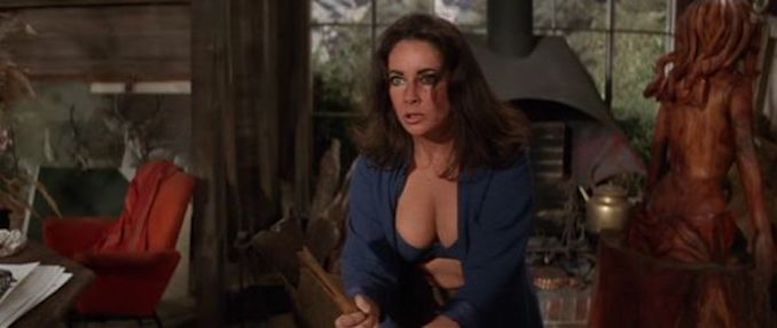 Time flies when you’re having fun…
Time flies when you’re having fun…
Reading the novels of Anthony Trollope, an English writer of the 19th century, one is struck by how different society is nowadays from his era.
It’s actually not that remote in time from our own.
Let me explain.
As a small child in 1957, I remember visiting my great-grandmother in an old folks’ home.
Born in 1862, she was already an adult when Trollope died so she may have read his books as a contemporary author, especially since his books were so popular in the U.S.
Despite the overlap of this single lifetime, despite all the recognizable institutions which are outwardly the same; i.e. the business world, the realm of the professions, the two party political system, schools and universities, churches, charities, etc., to read Trollope is to enter a lost world.
It is familiar as far as its outward trappings go, but the mindset of those who lived then would be bewildering to most of us nowadays.
Though human nature has not changed how people want to be perceived, how they judge themselves has.
For example, what has been dismissed as Victorian prudery or hypocrisy is simply a very real understanding of how one’s reputation could be compromised with terrible consequences. Thus people might not always behave but at least they tried to be discrete, i.e. they didn’t flaunt bad behavior.
You don’t have to go back to the 1880’s when Trollope died, however, to be struck by the contrast between how people felt they should lead their lives, then and now.
This realization of radical change in society can be found in a much more compressed time frame, i.e. in a single generation.
I recently watched two Hollywood movies on Turner Classic Movies (TCM), both reflective of the times they were made. Even though they were only 30 years apart, they seem as remote from each other as if they were from different countries in different centuries.
The first was 1935’s “A Tale of Two Cities,” based on Charles Dickens’s masterpiece about the French Revolution. Set during the Terror, when “The Committee of Public Safety.” decreed who would live or die depending on class background (Congresswoman Alexandria Ocasio-Cortez, call your office!), it starred two British acting greats in the roles of their lifetimes.
 The incomparable Ronald Colman played the immortal alcoholic barrister, Sidney Carton, (think of Paul Newman’s lawyer character, Frank Galvin in “The Verdict,” just set in 18th Century London and Paris, not 1980’s Boston.)
The incomparable Ronald Colman played the immortal alcoholic barrister, Sidney Carton, (think of Paul Newman’s lawyer character, Frank Galvin in “The Verdict,” just set in 18th Century London and Paris, not 1980’s Boston.)
Because of his unspoken love for a beautiful French aristocrat (played by the lovely Elizabeth Allan), Carton puts his legal career on the line and ultimately sacrifices his life, all on her behalf. The unmistakable message is that duty and honor are the ultimate virtues, that even someone like Carton, who has made a shambles of his life, can redeem himself by fealty to these principles.

Ronald Coleman
No small part of my enjoyment of the movie can be found in the trial scenes, both in London’s Old Bailey criminal court and Paris’s revolutionary tribunal. I only recently learned that author Dickens was himself a court reporter for years so he clearly knew what a legal trial was like.
The other movie I saw recently was 1965’s “The Sandpiper.”
A weak script might have been redeemed by an all-star cast, including Elizabeth Taylor, Richard Burton, Eva Marie Sainte and Charles Branson, but wasn’t!
Burton plays an Episcopal priest who is the headmaster of a boy’s school on the Big Sur Coast of California. (With “The Night of the Iguana” having come out the year before, Burton had cornered the market on playing defrocked-or soon to be defrocked- Episcopal priests!)
 Taylor is a free spirited artist and single mother living in a spectacular beach house. (The opening aerial shot of the Big Sur while they roll the credits is almost the only good thing about the movie!)
Taylor is a free spirited artist and single mother living in a spectacular beach house. (The opening aerial shot of the Big Sur while they roll the credits is almost the only good thing about the movie!)
We’re supposed to believe she supports herself by selling her paintings but we never actually see her sell anything, i.e. a “trust fund” artist, in other words.
When her young (middle school age) son gets in trouble with the juvenile authorities, Taylor (“Martha Reynolds”) has no choice but to enroll him in Burton’s prep school.
The Juvenile Court judge had claimed his unstructured, home schooled, existence was the cause of the boy’s delinquency. His behavior, which the left wing scriptwriter Dalton Trumbo saw as wonderfully hip and bohemian, a chip off the free spirited momma’s old block, is the sort of thing all progressives would be horrified by these days.
The lad (“Morgan”) shoots a fawn in the forest near his house for no apparent reason. He lets horses out of their corral on a neighboring ranch so they can “run free,” i.e. be hit by traffic on the coastal highway.
When the judge discloses that her son was also charged with groping a little girl on a playground, Taylor bristles, “She was DELIGHTED!” (Taylor’s character’s initial decision to resist social pressure, have the child out of wedlock, and not have an abortion is also cast in a positive light, something which would not pass muster today.)
Liz, who was already starting to look blowsy at this stage of her career, was supposed to be catnip to men, the Right Reverend Hewitt included.
She and Burton “meet cute” when she brings her son into interview at the school. She spars with him verbally and ends up walking out of the interview.
Not to fear, though!
They’ve started a love “thang.” Her son ends up going to the school ,thrives there, and naturally Burton starts hanging out at the beach for impromptu parent-teacher conferences. Inevitably ‘Someone From Her Past’ shows up and blows up the affair and his marriage.
In the end Burton/Hewitt decides to leave his wife and children, his faith, and his job. Not, I might add, to be with Liz, but to go off on a vague, existentialist, quest, i.e. what we now call middle-aged crazy. That’s it, the whole shooting match!
Not only is the plot hackneyed, but the dialogue is possibly the worst ever written for any movie not made for the drive-in circuit.
Just consider the following gems from La Taylor:
“I’ve never known anything like I’ve felt with you. It’s something I never really knew existed.”
“Don’t you realize what happened between us was good?”
“Am I as good for you as you were for me?”
“You’re a creep! I’ll be there, baby, when the chickens come home to roost!”
“Only freedom can fill the wild, palpitating heart of man!”
“Total adjustment is worse than maladjustment!”
“I’m at peace with myself, totally without guilt. I’ve lost all my sense of sin.”
“He’s making his own prison!”
“Adam stoolpigeoned on Eve.”
“The only way you can tame something is to let it fly free!”
“Life always flys back to life, if not penned in.”
The flight metaphor is an allusion to the little bird (a sandpiper, get it?) which Liz nurses back to health after finding it with a broken wing. Such symbolism!
On and on it goes, with dozens more of the most leaden clichés to disgrace a Hollywood script. Forget your family, your career, your community! Just think of yourself, i.e. “We all want to fly free!”
Some might say, “This was the 60’s, what do you expect?”
Yes, but it was the early 1960s when it was conceived and produced.
The hippie movement didn’t start until two years later, with 1967’s Summer of Love. (“Are you going to San-Fran-Cisco? Be sure to wear some flowers in your hair!”)
In other words, you can’t blame the idiocy of this movie on the counter culture, which didn’t even exist at the time. No, the fault lies primarily with the script writer, the first class S.O.B. named Dalton Trumbo.
Born in Colorado in 1905 to immigrant parents (Norwegian Protestants, so stand down on the tribal solidarity alert, Lefsetz!) ,Trumbo started in journalism but quickly shifted to screen writing. He had a very successful career writing the scripts for such movie classics as Spartacus and Thirty Seconds Over Tokyo.
Despite the fact that he was earning annually a mid-six figure income at a time when the average American family got by on less than three thousand dollars a year, Trumbo was a dedicated member of the American Communist Party.
He was one the of “Hollywood Ten” film writers who refused to testify before Congress about Communist influence in the movies. Trumbo even went to jail for contempt of congress, which made him a martyr to this day in some circles. One observer even praised him for his “unshakable moral conviction.” (Benedict White, “Who was Dalton Trumbo?,” London Sunday Telegraph, January 14, 2016)
I’ve never heard slavish adherence to the dictates of Joseph Stalin described as “moral conviction,” unshakable or otherwise. But then again, I hadn’t realized that 40 years after Trumbo’s death Hollywood would even make an adulatory biopic about him, “Trumbo” (2015), which practically nominates him for sainthood.
He further qualified for martyr status by going to Europe like other blacklisted Communists, to write screen plays under an assumed name for $200,000 a piece instead of $500,000 a piece in Hollywood.
This is the saintly creature who wrote works vehemently opposing the U.S. entry into World War II against Germany as long as Hitler and Stalin were allies. Once Hitler invaded Russia in June of 1941, of course, American Communists became strident proponents of American involvement and Dalton Trumbo was no exception.
This left Trumbo in the awkward position of having to suppress his own books and movies once they were at odds with the new Communist Party line.
So embarrassed was he by his prior pacifist stance in his anti-war screeds like “Johnny Got His Gun,” about a badly wounded WWI vet, that when isolationists wrote him to praise his work, not realizing he had switched positions per Moscow’s instructions, Trumbo turned them into the FBI as “subversives.”
An “ace move” by a principled Man of the Left!
Dalton Trumbo, as a dedicated Stalinist, wrote into “The Sandpiper” the same Marxist message he’d been pushing since the early 1930s.
“Progressives from the 19th Century to our time are well-nigh identical in their personal predilections-in what and when they hate even more then in what they love.
They see the culture of what Marxist call “bourgeois morality” as the negation of their identity and authority.” Angelo Codevilla,“The Rise of Political Correctness,” Claremont Review of Books, Fall 2016.
Again and again, Trumbo uses the dialogue to deliver heavy handed attacks on “the matrimony game, which was rigged before I was born,” “the whole male establishment,” “hypocritical clerics,” and “businessmen/fund raisers.”
In other words the lame gibes of every would be hipster, trying to sound like the beat laureates. Jack Kerouac and Alan Ginsberg but coming off sounding instead like “Maynard G. Krebs,” the moronic beatnick character on the late 50’s T.V. sitcom, “The Life and Loves of Dobie Gillis.”
One is indeed struck by how” The Sandpiper” is simply a negation of bourgeoisie values and how it calls for nothing positive in its place:
“No more than its European counterparts does America’s progressive ruling class offer any vision of truth, goodness, beauty or advantage to attract the rest of society to itself.” Codevilla, Ibid.
This is nihilism with a purpose.
Like a host of successors (“Easy Rider,” “Billy Jack,” etc.), of which it was the harbinger, “The Sandpiper” represented the advance guard of Cultural Marxism.
“A Tale of Two Cities,” spoke, by contrast, to a whole set of traditional values, and the idea of even the least of us being able to win redemption through love and sacrifice was only the most obvious.
We lost a lot as a culture and a nation in that 30 years, going from a great movie with a great message (“A Tale of Two Cities”) to a lousy movie with a worse message (“The Sandpiper.”)
If the recent Oscars are any indication, the decline has only accelerated since then.










Well said Dwight, as always.
I loved “The Verdict”. Newman at his best.